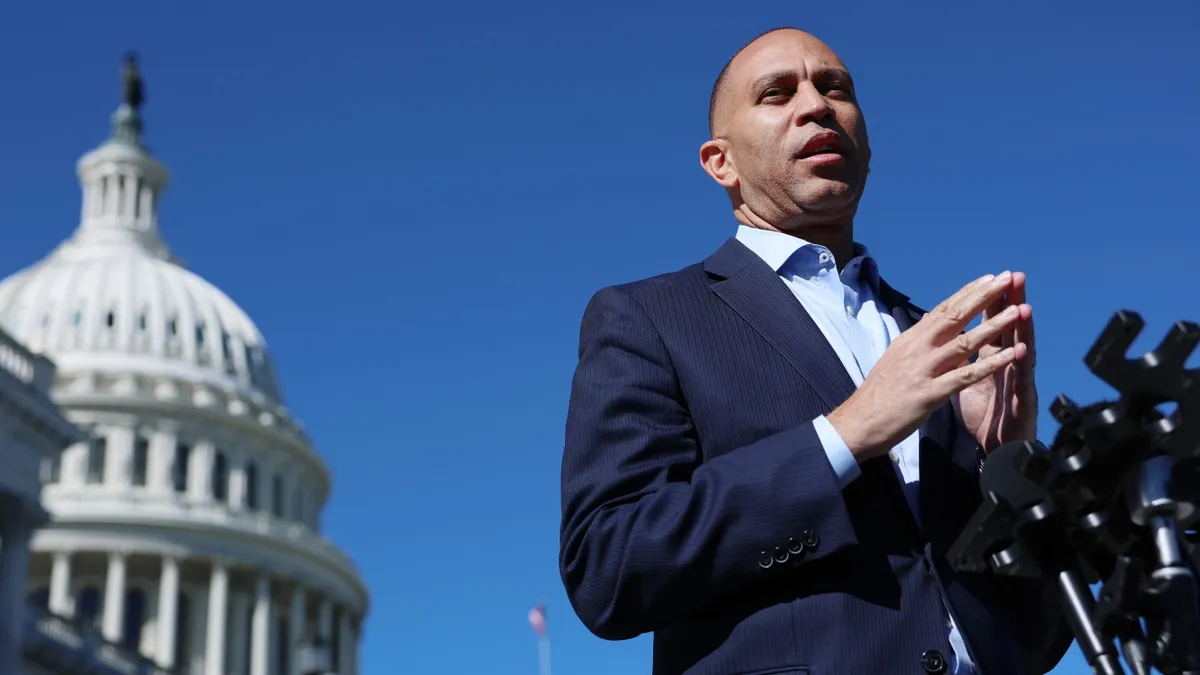
A man previously pardoned by President Trump for his involvement in the storming of the U.S. Capitol on January 6, 2021, has been arrested for allegedly threatening to kill House Minority Leader Hakeem Jeffries. Christopher Moynihan, 34, was taken into custody by New York State Police after the FBI alerted them to the threats he made against the prominent Democratic politician.
According to court documents, Moynihan was arrested following a text message he allegedly sent, in which he expressed his intention to kill Jeffries. His arraignment took place in local court in Clinton, New York, where he was remanded to the Dutchess County Justice and Transition Center. Moynihan is currently being held on bail options that include $10,000 cash, a $30,000 bond, or an $80,000 partially secured bond. He is scheduled to appear in court again on Thursday, facing a serious felony charge of making a terroristic threat.
In a statement made on Tuesday, Jeffries highlighted that Moynihan was one of many individuals pardoned on Trump's first day in office. Jeffries expressed concern over the implications of these pardons, stating, "Since the blanket pardon that occurred earlier this year, many of the criminals released have committed additional crimes throughout the country." He lamented that law enforcement is now tasked with protecting communities from individuals who should never have received a pardon.
Moynihan had previously been sentenced to 21 months of incarceration and 36 months of supervised release in 2023. He was pardoned alongside over 1,500 other defendants charged with crimes related to the Capitol riot. During the chaos on January 6, Moynihan was recorded on video inside the Senate floor saying, "There's got to be something we can use against these f*ing scumbags."
This incident is part of a broader trend of increasing threats against lawmakers. The Capitol Police reported to NPR in September that they are on track to manage approximately 14,000 threat assessment cases by the end of the year, marking a significant increase compared to previous years. The concerning rise in threats highlights the ongoing challenges faced by law enforcement in safeguarding public officials.
As the situation develops, it remains to be seen how this case will unfold in court and what implications it may have on the broader discourse surrounding law enforcement and political safety in the United States.